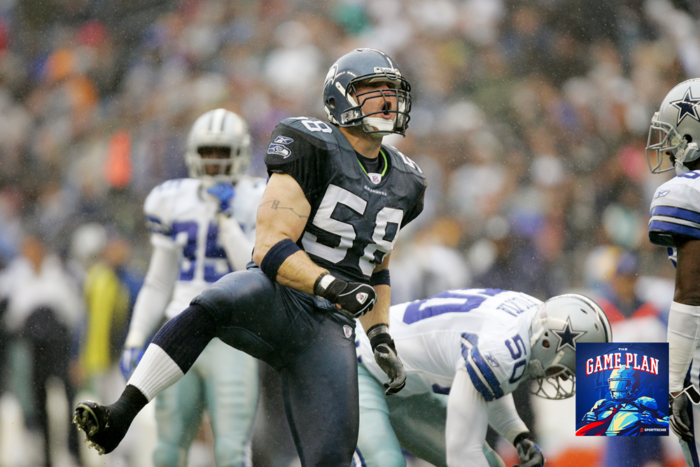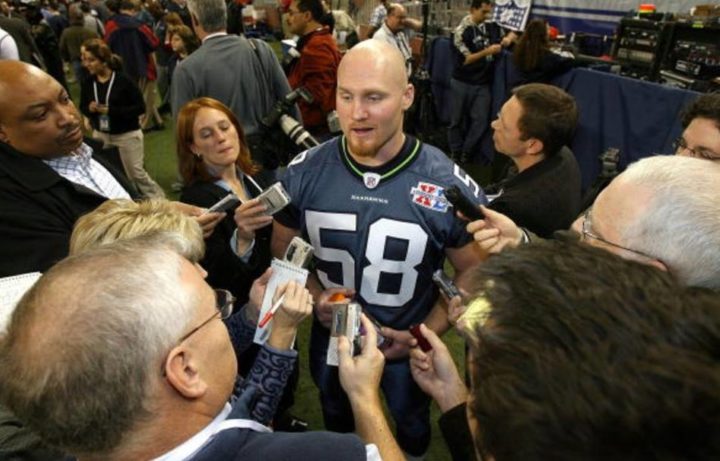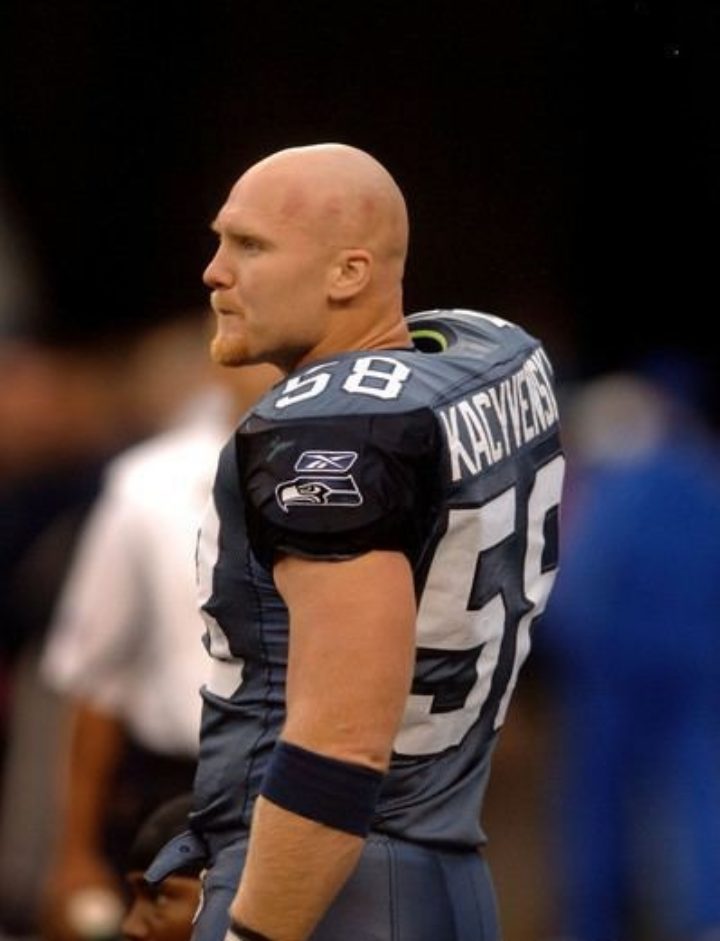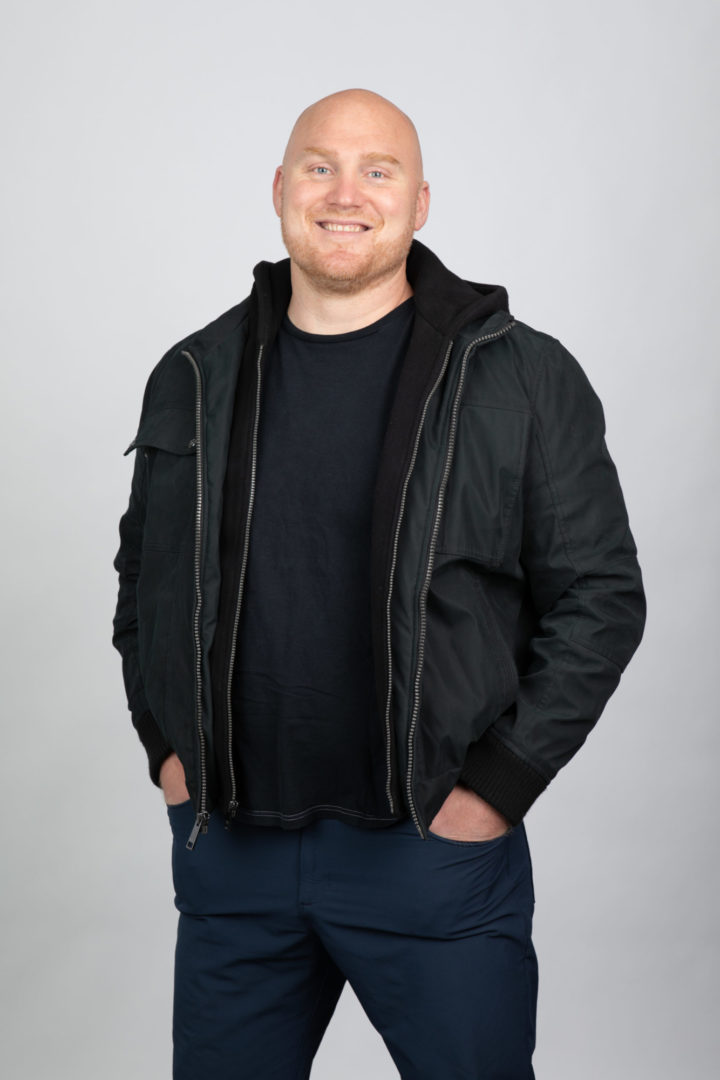On His Football Career
I always like to say I was never a “superstar.” I grinded out eight years in the league, which is difficult to do — especially when you’re not in that “superstar” category. As a linebacker and mainly special teams guy, it is a constant understanding that your next game, or next year, could be your last.
So, during my eight years, I knew that it was a business. But, I couldn’t let that take over in how I approached every day. It’s a cutthroat business in a lot of different aspects. But, the love of the game, the joy for the game, realizing how lucky I was to play for all those years – I brought that to practice, the film room, meetings, weight room, etc.

Isaiah Kacyvenski is an eight-year NFL veteran who played with the Seattle Seahawks, St. Louis Rams, and Oakland Raiders as a linebacker. After graduating from Harvard pre-med, Kacyvenski always had his sights on what would come after his time in the league. After pursuing entrepreneurship and investing during his free time and off-seasons, he is now co-founder of Will Ventures.
“ Early in my playing career, I started to think about things outside of football. ”

I grew up as a nine year old kid just dreaming of being in the NFL. To get there and play alongside or against guys that were idols of mine growing up was always mind-blowing to me.
I had the fortune of playing against Jerry Rice and having him as a teammate in one of his last stops before retiring. That was one of those moments. I think every player has those — ‘Oh my God’ moments where you realize you made it.
Early in my playing career, I started to think about things outside of football. I had always had my eye on feeding this level of curiosity and being involved in things in the offseason. You have tons of time, and I wanted to make good use of it.
“ I grew up in poverty, and I was homeless for parts of my childhood. I realized early on that sports and academics were going to be my way out. ”
His Investment into Off-the-Field Pursuits
For me, I had a background that I think is similar for a lot of guys in the league. I grew up in poverty, and I was homeless for parts of my childhood. I realized early on that sports and academics were going to be my way out.
Fast forward all the way through, and my backup plan if I didn’t play in the NFL was to be a doctor. I was a pre-med undergrad at Harvard.
“ I remember that first check being handed to me, my signing bonus for 275k. My dad made 8k a year as a janitor. ”

I didn’t have a finance or business background. I remember that first check being handed to me, my signing bonus for 275k. My dad made 8k a year as a janitor. I remember looking at that check and not knowing what to do. I was science-educated. I hadn’t been to that other (business) side. So, I had a choice to make: hand it off to someone else like a financial advisor, or try to dig in and learn as much as I could. And that’s what I did. learned as much as I could over the next three years. Having free time, both during the season and in the offseason, I would learn everything I could about public markets, private markets, read every book I could, talked to as many people as possible. I really formed an opinion of how the financial world works.
In 2003, I decided I wanted to become an angel investor in private companies. I wanted to figure out how to invest in early-stage and learn how companies grow from an idea. I started investing, which was an amazing experience. I learned like a fly on the wall how to take a concept, bring it to commercialization. All of those things as an entrepreneur and how entrepreneurs interact with investors, and vice versa.
That continued to expand over the years, and my angel portfolio grew to over 30 companies.
“ I wanted to figure out how to invest in early-stage and learn how companies grow from an idea. ”
His Plan Post Football
One of the things I did as a player was pay attention to what guys did after they were done playing. I stayed in touch with people and tried to see who actually challenged themselves and who didn’t. I saw that, depending on the approach, some of the guys who were masters of the universe on the field became shells of themselves if they weren’t challenging themselves.
I definitely knew I wanted to challenge myself. So how do I find those things I’m really passionate about in the game and recreate that? I had some great mentors I sought out to help me do that.
“ I knew I wanted to be an investor and a venture capitalist, I just needed the stepping stones for it. A MBA felt like the way to fast forward. ”

A lot of players don’t leave on their own terms. You get injured, you’re not good enough, etc. I saw that coming as well. I didn’t want to go to medical school and felt that business school was the best way to get a formal base of knowledge to figure out what I wanted to do. I knew I wanted to be an investor and a venture capitalist, I just needed the stepping stones for it. A MBA felt like the way to fast forward.
A lot of times as a player, you have to play catch-up. I was 31 at the time and people I had graduated with were already in the industry for 9-10 years. They seemed to have that head-start. There are some amazing qualities as a player you have that can translate over and accelerate that learning curve. It came together for me.
On His Path to Co-Founding Sports Innovation Lab & Will Ventures
I knew I wanted to be a venture capitalist/an investor eventually. I love working with entrepreneurs. I got a great piece of advice from a world-renowned investor who had been a mentor as I transitioned out of business school. He said, “My best piece of advice: if you want to be an investor, be an entrepreneur first. You have to understand what it’s like to stand in those shoes, have your back against the wall, pull a team together and take that concept all the way to commercialization.” It was an awesome piece of advice, and I decided to take the route of becoming an entrepreneur first.
I joined a great company called MC10, a world leader in making thin, flexible electronics. I learned a ton, was one of the first people that joined, and it was a venture-backed company. That really set me on a path.
“ I had always seen this intersection between how sports is opening up large adjacent markets. ”
I had always seen this intersection between how sports is opening up large adjacent markets. Doing that, while working closely with my co-founder Brian Riley at MC10, we started to formulate this idea of, ‘What is Will Ventures?’
The idea as entrepreneurs, working closely with companies, with other entrepreneurs, with large corporations, with investors — how does sports — this perceived niche market — open up things such as health care, fitness, digital media, IOT (internet of things), as well as DFS, Esports, gaming, etc.?
I started working on that thesis and jumped from there on founding the Sports Innovation Lab, which became a stepping stone to starting Will Ventures. Will Ventures is an early-stage teammates for consumer, health, and media startups.
The Trust is here to support you.
Ready to learn how?